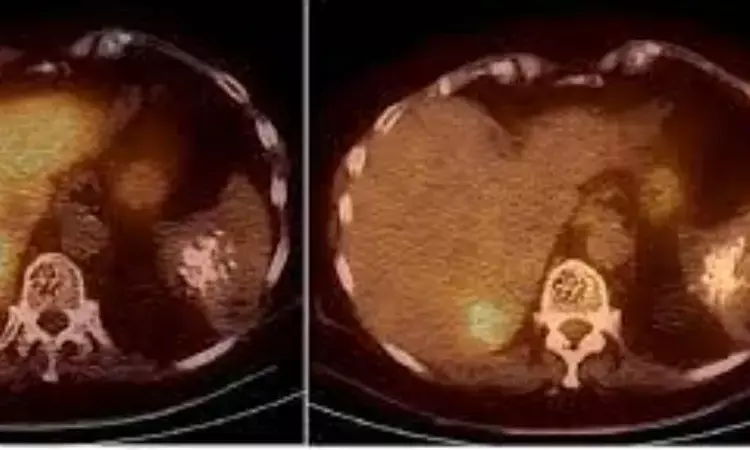- Home
- Medical news & Guidelines
- Anesthesiology
- Cardiology and CTVS
- Critical Care
- Dentistry
- Dermatology
- Diabetes and Endocrinology
- ENT
- Gastroenterology
- Medicine
- Nephrology
- Neurology
- Obstretics-Gynaecology
- Oncology
- Ophthalmology
- Orthopaedics
- Pediatrics-Neonatology
- Psychiatry
- Pulmonology
- Radiology
- Surgery
- Urology
- Laboratory Medicine
- Diet
- Nursing
- Paramedical
- Physiotherapy
- Health news
- Fact Check
- Bone Health Fact Check
- Brain Health Fact Check
- Cancer Related Fact Check
- Child Care Fact Check
- Dental and oral health fact check
- Diabetes and metabolic health fact check
- Diet and Nutrition Fact Check
- Eye and ENT Care Fact Check
- Fitness fact check
- Gut health fact check
- Heart health fact check
- Kidney health fact check
- Medical education fact check
- Men's health fact check
- Respiratory fact check
- Skin and hair care fact check
- Vaccine and Immunization fact check
- Women's health fact check
- AYUSH
- State News
- Andaman and Nicobar Islands
- Andhra Pradesh
- Arunachal Pradesh
- Assam
- Bihar
- Chandigarh
- Chattisgarh
- Dadra and Nagar Haveli
- Daman and Diu
- Delhi
- Goa
- Gujarat
- Haryana
- Himachal Pradesh
- Jammu & Kashmir
- Jharkhand
- Karnataka
- Kerala
- Ladakh
- Lakshadweep
- Madhya Pradesh
- Maharashtra
- Manipur
- Meghalaya
- Mizoram
- Nagaland
- Odisha
- Puducherry
- Punjab
- Rajasthan
- Sikkim
- Tamil Nadu
- Telangana
- Tripura
- Uttar Pradesh
- Uttrakhand
- West Bengal
- Medical Education
- Industry
PSMA PET imaging more accurate than CT in detecting hepatocellular carcinoma

Reston, VA - PSMA (prostate-specific membrane antigen) PET/CT is more accurate than conventional CT in the detection of hepatocellular carcinoma metastases, according to research published in the September issue of The Journal of Nuclear Medicine. PSMA PET imaging was also found to be associated with a change of management for nearly half of the patients, allowing them to receive the most effective treatment for their disease.
Hepatocellular carcinoma—a type of liver cancer—is the sixth most prevalent cancer and the third most frequent cause of cancer-related death. Despite the availability of a growing number of local and systemic therapies, patient survival remains short. Accurate staging is critical for management decisions.
"With more accurate imaging for staging of patients, we can identify early on patients who could benefit from particular treatments, like chemotherapy, which has an impact on survival and quality of life," said Nader Hirmas, MD, physician scientist at the department of nuclear medicine at Essen University Hospital in Essen, Germany.
Hepatocellular carcinoma is typically diagnosed with conventional imaging, like CT or MRI. Recent research, however, has shown that hepatocellular carcinoma has PSMA on the surface of its cancer cells. To explore this discovery, study authors assessed the impact of PSMA PET imaging on patients with hepatocellular carcinoma and compared it to CT.
The retrospective study included 40 patients who received imaging with 68Ga-Ga-PSMA-11 PET/CT. Patients received a CT as well as a PSMA PET scan. Three blinded nuclear medicine physicians determined the presence of hepatocellular carcinoma in the liver and elsewhere in the body based on the CT images and the PSMA PET images separately, and lesions were validated by follow-up imaging or biopsy. Researchers then compared the detection rates for each imaging modality, as well as changes made in staging, grouping and management plans of patients.
Results indicate that PSMA PET and CT are similar in diagnosing hepatocellular carcinoma in the liver, but that PSMA PET is more accurate for tumors that have spread beyond the liver. With a more accurate diagnosis of the locations of the hepatocellular carcinoma tumors, the original management plan changed in 19 of the 40 patients—almost half of the patient sample—leading towards a shift towards systemic therapy.
"We hope that this study encourages more research into the topic, so that multi-disciplinary oncology practices and guidelines would use PSMA PET in the diagnosis of hepatocellular carcinoma," noted Wolfgang Fendler, MD, vice chair of nuclear medicine at the Essen University Hospital in Essen, Germany. "More broadly, it shows that many of the molecular imaging techniques could supplement or even outperform conventional imaging in the diagnosis of particular tumors."
https://jnm.snmjournals.org/content/62/9/1235
Hina Zahid Joined Medical Dialogue in 2017 with a passion to work as a Reporter. She coordinates with various national and international journals and association and covers all the stories related to Medical guidelines, Medical Journals, rare medical surgeries as well as all the updates in the medical field. Email: editorial@medicaldialogues.in. Contact no. 011-43720751
Dr Kamal Kant Kohli-MBBS, DTCD- a chest specialist with more than 30 years of practice and a flair for writing clinical articles, Dr Kamal Kant Kohli joined Medical Dialogues as a Chief Editor of Medical News. Besides writing articles, as an editor, he proofreads and verifies all the medical content published on Medical Dialogues including those coming from journals, studies,medical conferences,guidelines etc. Email: drkohli@medicaldialogues.in. Contact no. 011-43720751


